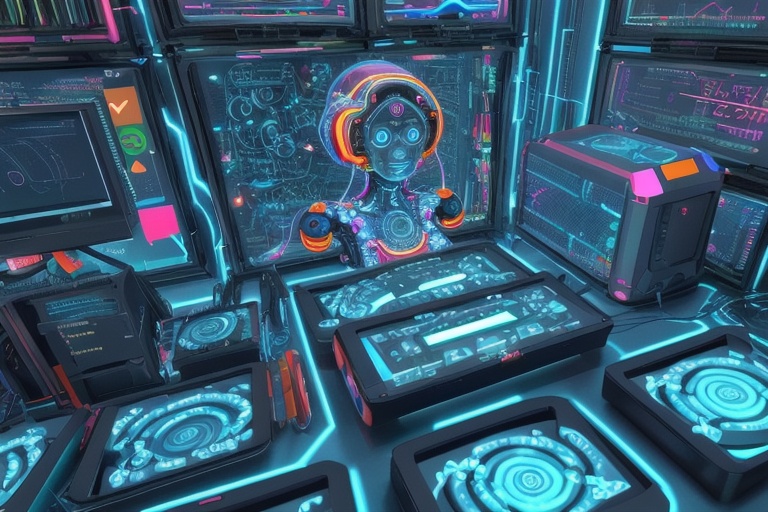The advent of artificial intelligence (AI) has ushered in a wave of technological advancements that have the potential to reshape our approach to numerous sectors. As many industries confront the consequences of integrating such transformative technology, there is a prevailing concern that AI could supplant human intelligence, leading to widespread job displacement. However, this perspective overlooks the collaborative potential of AI. When humans harness AI as an augmentative tool, we unlock a synergy that empowers human intellect rather than undermines it. This concept of augmented intelligence is not a futuristic ideal but a present reality, as evidenced in the realm of chess, where the confluence of human strategic depth and AI computational power has birthed a new paradigm of mastery.
The advent of artificial intelligence (AI) has ushered in a wave of technological advancements that have the potential to reshape our approach to numerous sectors. As many industries confront the consequences of integrating such transformative technology, there is a prevailing concern that AI could supplant human intelligence, leading to widespread job displacement. However, this perspective overlooks the collaborative potential of AI. When humans harness AI as an augmentative tool, we unlock a synergy that empowers human intellect rather than undermines it. This concept of augmented intelligence is not a futuristic ideal but a present reality, as evidenced in the realm of chess, where the confluence of human strategic depth and AI computational power has birthed a new paradigm of mastery.
Augmented Intelligence in Practice
The chess world offers a prime example of the successful marriage between human intuition and machine precision. Human-AI teams, often referred to as 'centaurs', have demonstrated that the strategic acumen of a chess grandmaster combined with the brute-force computation of AI leads to a superior force on the chessboard. This fusion allows for unparalleled decision-making, with machines sifting through millions of possible moves and humans applying creative judgment and experience to select the optimal strategies.
Expanding Beyond Chess
The lesson from chess extends far beyond the checkered board; it serves as a model for various industries. Embracing AI doesn't equate to an unequivocal replacement of human intelligence but rather signifies an opportunity to amplify it. In fields like programming, AI-driven tools assist developers by automating mundane tasks, spotting potential errors, and suggesting code improvements, thereby freeing up human cognition for more creative and complex problem-solving.
The Role of AI in Modern Organizations
For contemporary organizations, the integration of AI represents an invaluable asset. AI can manage and analyze vast swaths of data with speed and accuracy beyond human capability. This allows businesses to glean insights, predict trends, and make data-driven decisions more efficiently than ever before. Utilizing AI as a collaborative tool enables workforces to focus on tasks that require a human touch—such as empathy, moral judgment, and interpersonal skills—while leaving data processing and analysis to machines.
The Promise of Machine Learning
Machine learning (ML), a subset of AI, holds particular promise in revolutionizing how we interact with data and make decisions. ML algorithms can identify patterns and learn from them, offering the potential to continuously improve processes and solutions. In healthcare, ML algorithms assist in diagnosing diseases by analyzing medical imaging, while in finance, they help detect fraudulent activity by recognizing anomalous patterns. These are mere glimpses into the boundless applications of ML, revealing a future in which AI not only supports but elevates our abilities.
AI and Education
Education is another realm poised for transformation through AI. Educational tools equipped with AI can personalize learning, adapting to students' individual needs and pacing. This personalization can lead to more effective learning outcomes, as AI identifies gaps in knowledge and provides targeted instruction. The future of education may well witness a symbiotic relationship between teachers and AI, melding the nurturing guidance of educators with the adaptive learning environments created by artificial intelligence.
Preparing for an AI-Enhanced Future
The trajectory towards an AI-enhanced future necessitates a proactivity in embracing and understanding AI technologies. For individuals and organizations alike, developing a proficiency in AI and ML will become increasingly important. Workers will need to adapt, cultivating skills that complement AI, while businesses will require strategies to seamlessly integrate AI into their operations.
The Ethical Considerations of AI
Concerning AI adoption, the discussion extends to ethical considerations. Ensuring that AI is designed and used responsibly, with attention to privacy, bias, and security, is paramount. As such, there is a pressing need for guidelines and regulations that govern AI application, ensuring that machines serve as responsible aids to human intelligence.
Conclusion
Ultimately, artificial intelligence is not about replacing human intelligence but enhancing it. By leveraging AI and ML, we have the opportunity to advance our capabilities, work more efficiently, and foster a collaborative future where humans and machines coexist and prosper. Embracing this potential today will set the foundation for a tomorrow where augmented intelligence becomes a ubiquitous and benevolent force across all facets of society.
Information for this article was gathered from the following source.




